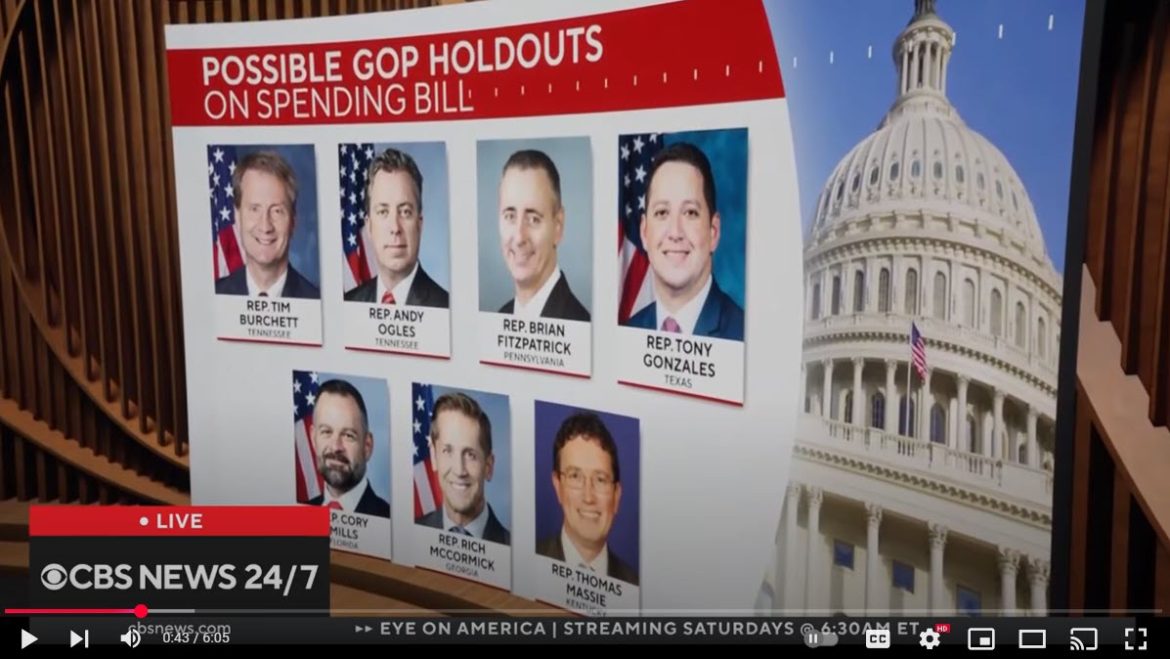The U.S. House of Representatives is set to vote today on a stopgap government funding bill, with just days left before a potential federal shutdown on Friday. The bill, proposed by House Speaker Mike Johnson, would fund the government through the end of September. Johnson is urging Democrats to support the measure, warning that failure to pass it would result in financial consequences for millions of Americans.
House Republicans are rallying support within their party to secure enough votes before sending the legislation to the Senate, where it will require bipartisan backing to pass. The bill, which GOP members are calling a “clean” funding proposal, has drawn criticism from Democrats who argue that it includes provisions that would allow a future Trump administration to redirect federal funds as it sees fit. Democrats have also raised concerns about potential cuts to entitlement programs, including Medicare, Medicaid, and the VA Health System, which they argue would hurt vulnerable Americans.
As both parties continue to negotiate, tensions remain high. House Speaker Mike Johnson has stated that Republicans are united in their approach and that Democrats must meet them halfway. However, Democratic lawmakers, including California Congressman Pete Aguilar, claim they have been excluded from the budget process. Aguilar also criticized portions of the bill that he says would result in cuts to VA contracts, potentially affecting services for veterans.
The looming shutdown has triggered a blame game between both parties, with Republicans insisting that fiscal responsibility requires some level of spending cuts and Democrats accusing them of prioritizing political leverage over governance. Former President Donald Trump has backed Johnson’s approach, urging Republican lawmakers to support the plan, further cementing party divisions over the funding negotiations.
If the House passes the bill, it will move to the Senate, where Democratic and Republican leaders will have to reach an agreement before the Friday deadline. A failure to do so could result in widespread disruptions to federal agencies, affecting government employees, national security operations, and economic stability.
With only hours left to avert a shutdown, lawmakers on both sides remain deeply entrenched in their positions. Whether a last-minute deal will emerge remains uncertain, but the stakes for government workers, federal contractors, and millions of Americans who rely on government services have never been higher.



